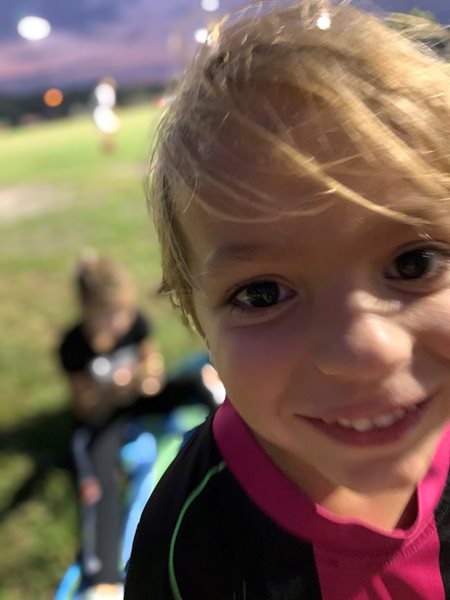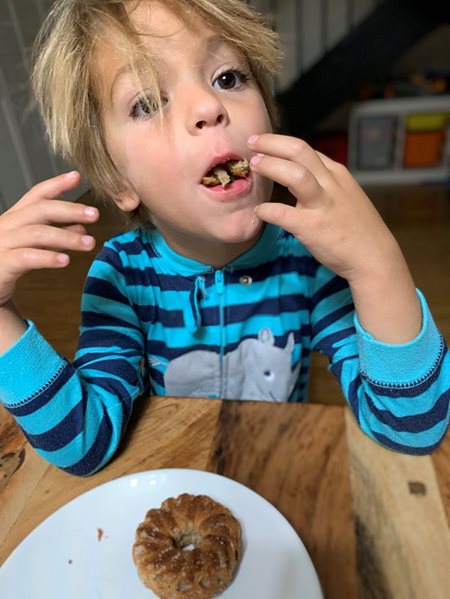Tomas was a typical, developing three-year-old when he had his first seizure. At first, his parents thought it was related to a temperature spike, but when he had another one the next day, they knew something was terribly wrong. The next 24 hours were a whirlwind.
The family rushed Tomas to the emergency room at Nicklaus Children's and doctors admitted him to perform a neurological assessment that included a video electroencephalogram (video EEG) to monitor his brain waves. Doctors recorded at least three different types of seizures on the studies, some of them were so quick they were not noticeable to the eye. Tomas' mother, Luly, says her world was turned upside down.
"I couldn't believe it. I thought to myself how could this be happening."

Tomas was placed on a series of medications to help control the seizures, but after weeks of trying various doses and types of medications his body did not respond well.
"Even with the anticonvulsants he was having up to five and six seizures an hour. When the doctors tried stronger medications, they began affecting his memory and balance," said Luly.
Dr. Paula Schleifer, pediatric neurologist, and Dr. Parul Jayakar, pediatric geneticist at Nicklaus Children's Hospital evaluated Tomas and both recommended placing him on a ketogenic diet. Nicklaus Children's Hospital offers a ketogenic diet clinic to help children with neurological conditions. The diet has proven effective in the treatment and reduction of seizures in children with epilepsy. The ketogenic diet is a clinical treatment and cannot be initiated without medical supervision.
"I had been provided the ketogenic diet as an option in the past, but honestly felt like it was such a difficult lifestyle change. I wasn't sure I could fully commit to something like that," said Luly. "But at that point, I was losing my son and was willing to try anything to keep him alive."
The Diez family met with the Ketogenic Diet Clinic at Nicklaus Children's, led by a team of neurologists, nurse practitioners and dieticians who together work on an individualized plan tailored to each patient.
Maria del Pilar Gennaro, Advanced Practice Nurse Practitioner with the Ketogenic Diet Clinic at Nicklaus Children's Hospital's Brain Institute, is part of a team of clinicians that work with epilepsy patients to offer a metabolic option to treat the effects of the condition. "What I tell parents when they first come to our clinic is that it will take time to see the effects, at least three to four months."
Patients are admitted to the hospital for up to three days of monitoring. Much like starting a new medication, the diet is introduced slowly and in stages, modifying the diet until the clinicians find the right level of ketosis for the patient.
Tomas started the diet in August of 2018. "I had to learn so much," says Luly. "I had to learn a new way of cooking, thinking and measuring. There was a lot of trial and error getting the ratios adapted to his little body."

It was worth it. After only four months of following the strict diet, Tomas was showing no signs of seizure activity. A recent EEG revealed there were no signs of seizure activity in his brain. Luly says her son's quality of life has completely changed thanks to the lifestyle. Although it takes planning and preparation, especially when they go on vacation, she says it is manageable.
"It is truly an amazing feeling to see a child thrive as a result of the diet," said Pilar. "I have been doing this for 32 years and it still feels like the first time when we see a child adjust so well and begin to live a better quality of life."

Tomas is starting kindergarten next fall and is active in swimming, soccer and baseball.
Learn more about the Ketogenic Diet Clinic and Outpatient Nutritional services at Nicklaus Children's.
You can follow Tomas and his adventures on Instagram @ketoliciouskid